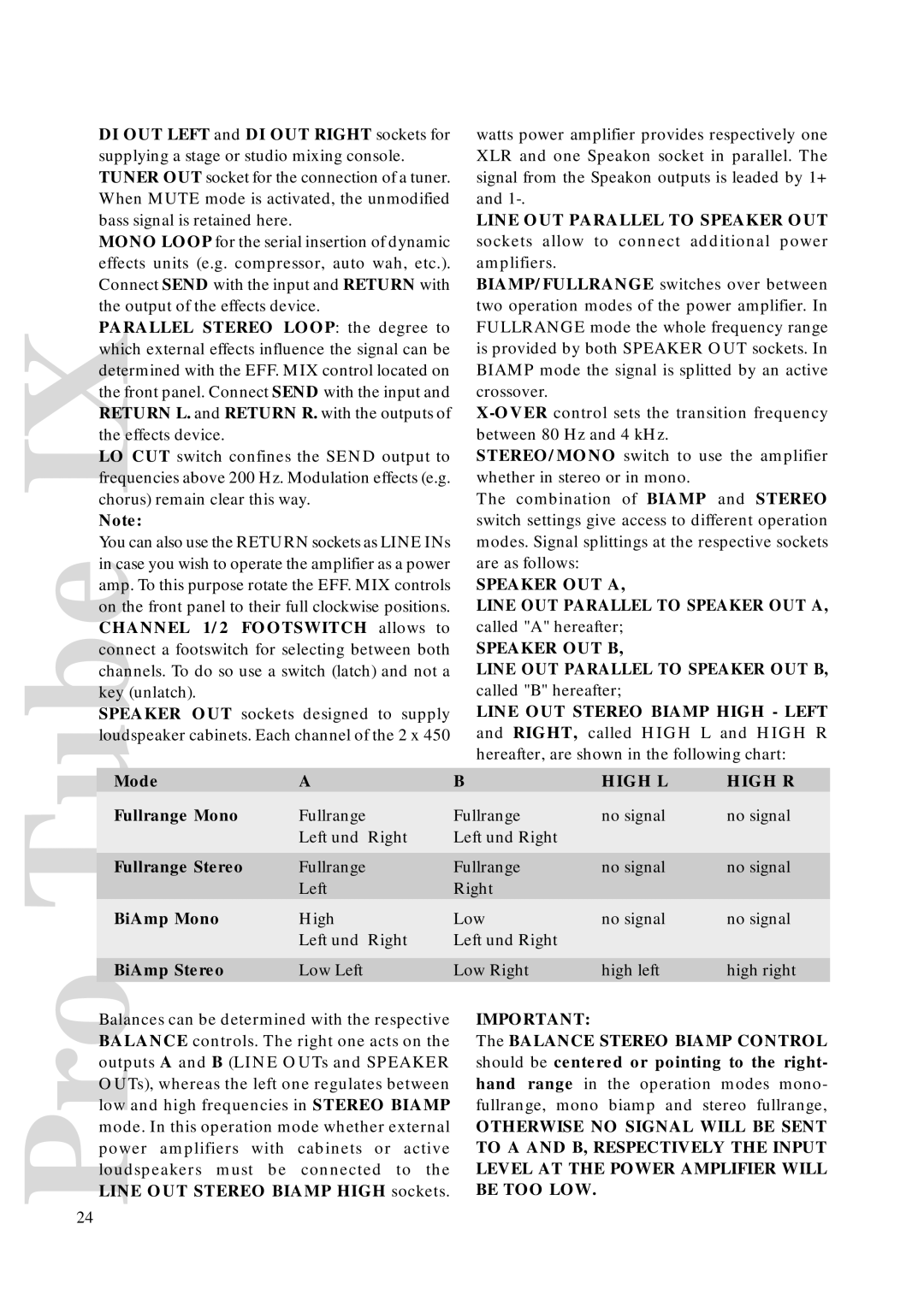ProTube IX, ProTube IV specifications
The Warwick ProTube IV and ProTube IX are two notable amplifier series from the renowned German instrument manufacturer Warwick, widely recognized for their commitment to producing high-quality musical equipment. Both models are designed for bass players seeking exceptional sound quality, versatile features, and reliable performance on stage and in the studio.The Warwick ProTube IV is distinguished by its powerful 450-watt output, delivering a wide dynamic range that ensures clarity and punch across various musical styles. One of its standout features is the innovative hybrid design, combining both tube and solid-state technologies. This design provides the warmth and character often associated with tube amplifiers, while also leveraging the reliability and headroom of solid-state components. This hybrid approach results in an amp that produces rich harmonic overtones and a full-bodied sound, satisfying the tonal preferences of many bassists.
Additionally, the ProTube IV sports a comprehensive set of tonal shaping options. Its dual-channel design allows musicians to switch between clean and overdriven sounds seamlessly. Built-in controls for gain, treble, mid, and bass frequencies give players extensive customization capabilities, enabling them to dial in their ideal tone. Furthermore, the amp features a balanced DI output, making it easy to connect to recording equipment or a PA system for live performances.
On the other hand, the Warwick ProTube IX ups the ante with its robust capabilities and innovative technologies. Featuring an impressive 800-watt output, this amplifier is designed for the professional bassist requiring reliable performance in demanding environments. Similar to the ProTube IV, it utilizes a hybrid architecture, blending the richness of tube warmth with the power and stability of solid-state circuitry.
The ProTube IX is equipped with advanced signal processing technology, including a built-in compressor and EQ section that allows for further tonal customization. The compressor provides control over dynamics, ensuring that each note is articulate and well-defined, even in high-volume situations. Additionally, the amplifier includes a range of connectivity options, such as headphone outputs and an AUX input, catering to modern players' needs.
Both models come housed in rugged enclosures, designed to withstand the rigors of touring and consistent use. Their user-friendly interfaces streamline operation, letting musicians focus on their performance rather than technical details.
In summary, the Warwick ProTube IV and ProTube IX represent a fusion of reliable engineering and tonal versatility. Their unique features and advanced technologies make them suitable for a wide range of bass players, providing the power and sound quality necessary for both live performances and studio recordings.

